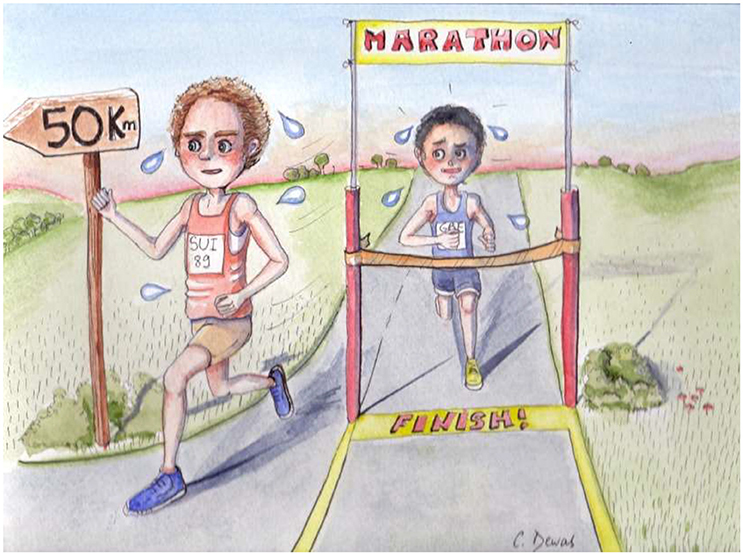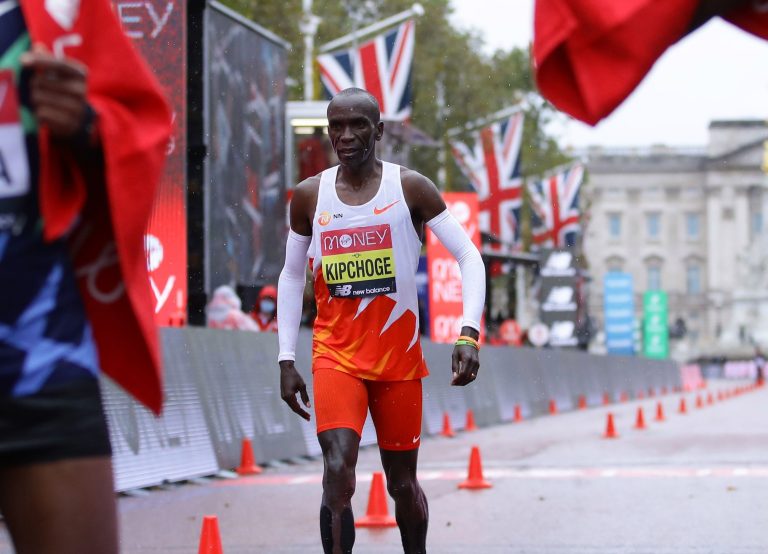Marathon Vs Ultramarathon
Marathon is typically 26.2 miles, while an ultramarathon goes beyond 26.2 miles, usually 50K or more. Wondering about the differences between a marathon and an ultramarathon?
Both are endurance running events that test a runner’s physical and mental limits. A marathon is a 26. 2-mile race, generally seen as a significant achievement for many runners. On the other hand, an ultramarathon is any race distance longer than a marathon, often starting at 50 kilometers and going up to 100 miles or more.
Ultramarathons require even greater endurance, preparation, and determination. If you’re looking to challenge yourself beyond a marathon, an ultramarathon might be the next exciting step in your running journey.

Credit: www.facebook.com
What Is A Marathon?
What is a Marathon?
Distance
A marathon is a long-distance running race with an official distance of 42.195 kilometers (26.219 miles).
History And Origin
The marathon has its roots in the legend of Pheidippides, a Greek messenger who is said to have run from the battlefield of Marathon to Athens to deliver news of the Greek victory over the Persians. The modern marathon event was established in commemoration of this legendary run.

Credit: www.pinoyfitness.com
What Is An Ultramarathon?
An ultramarathon is a challenging endurance running event that goes beyond the traditional marathon distance of 26.2 miles. Ultramarathons typically involve covering distances greater than a marathon, ranging anywhere from 31 miles to hundreds of miles on various terrains. These races test the physical and mental limits of the participants, requiring immense determination and stamina.
Distance
Ultramarathons cover distances that exceed a standard marathon, often ranging from 50 kilometers to 100 miles or more. Some ultramarathons even extend to multi-day events where participants run for consecutive days covering distances far beyond the marathon length.
Types Of Ultramarathons
- Trail Ultramarathons: Held on rugged, off-road trails with varying terrain and natural obstacles.
- Road Ultramarathons: Conducted on paved surfaces, typically covering multiple loops of a set distance.
- Mountain Ultramarathons: Set in mountainous regions with steep ascents and descents, testing runners’ climbing skills.
- Track Ultramarathons: Occur on standard running tracks, where participants run in endless loops to cover the required distance.
Training And Preparation
Physical Conditioning: Marathon training includes long runs and pace work. Ultramarathon training focuses on endurance and trail running.
Mental Preparation: Marathons require mental strength for the distance. Ultramarathons test endurance and mental resilience.
Physical Conditioning
- Marathon: Focuses on long runs and pace training.
- Ultramarathon: Emphasizes endurance and trail running.
Mental Preparation
- Marathon: Requires mental strength for the distance.
- Ultramarathon: Tests endurance and mental resilience.
Training for a marathon involves long runs and pace work. Ultramarathon training, on the other hand, places a heavier emphasis on building endurance and tackling challenging terrains. While marathons demand mental fortitude to conquer the set distance, ultramarathons push boundaries by testing both physical endurance and mental resilience.

Credit: www.frontiersin.org
Race Day Experience
Race day experience is a crucial aspect that sets a marathon and an ultramarathon apart, significantly impacting the strategies and emotions of participants. Both races possess unique attributes that make them stand out, from the bustling crowd support to the intricate pacing and strategizing involved.
Crowd Support
The atmosphere of a marathon is often charged with electrifying energy as spectators line the streets, cheering and motivating the runners. This vibrant cheering section can uplift the spirits of athletes, providing a continuous stream of encouragement and support. In contrast, the ultramarathon, with its longer distances and more remote routes, may have less consistent crowd presence. However, the smaller, tight-knit groups of supporters in specific areas can foster a strong sense of camaraderie among participants.
Strategy And Pacing
In a marathon, runners typically focus on a controlled and steady pace to endure the 26.2-mile distance, often following disciplined pacing plans. The emphasis is on maintaining a sustainable speed to avoid fatigue early on. On the other hand, ultramarathons, with their variable terrains and greater distances, demand versatile strategies. Participants might incorporate walking segments on steeper inclines or challenging terrain, creating a more flexible approach to pacing.
Physical And Mental Challenges
The challenges of running a marathon or an ultramarathon extend beyond the physical demands of covering long distances on foot. Both races test the limits of an athlete’s physical endurance and mental resilience. Understanding and preparing for these physical and mental challenges is crucial for runners aiming to conquer either of these remarkable feats, which differ significantly in terms of distance, duration, and difficulty.
Physical Fatigue
The physical demands of a marathon or an ultramarathon cannot be underestimated. While a marathon typically covers 26.2 miles (42.2 kilometers), an ultramarathon encompasses any race longer than this distance, often stretching to 50 miles (80 kilometers), 100 miles (160 kilometers), or even more.
The prolonged exertion of running for hours on end puts immense strain on the body, leading to fatigue, muscle soreness, and the risk of injuries. Marathon runners must condition their bodies to endure the continuous pounding of their feet on solid ground, while ultramarathon runners face the additional challenge of coping with varied terrains and elevation changes.
Mind Over Body
In addition to the physical demands, the mental challenges associated with marathon and ultramarathon races are equally significant. Marathon runners must maintain focus and determination, especially during moments of physical discomfort, to push through to the finish line.
On the other hand, ultramarathon runners require exceptional mental fortitude to cope with the sustained effort required for races that can last 24 hours or more. Enduring such long hours on the move, often through the night, necessitates a strong mental game and the ability to stay motivated when fatigue sets in.
Both marathon and ultramarathon runners ought to develop strategies to combat mental fatigue. These may include breaking the race into smaller, manageable segments, setting achievable goals along the way, and implementing mental techniques such as positive self-talk or visualization techniques to maintain focus and motivation.
Frequently Asked Questions Of Marathon Vs Ultramarathon
How Long Is A Marathon And Ultramarathon?
A marathon is typically 26. 2 miles (42. 195 kilometers), while an ultramarathon is any race longer than that distance.
What Is The Difference Between A Marathon And An Ultramarathon?
Marathons are standard races of 26. 2 miles, while ultramarathons cover longer distances, often spanning 50 miles or more.
What Kind Of Training Is Needed For A Marathon Versus An Ultramarathon?
Training for a marathon involves building endurance and speed, while ultramarathon training focuses on increasing distance gradually and practicing mental resilience.
Conclusion
Whether you prefer the endurance of a marathon or the ultimate challenge of an ultramarathon, both offer unique experiences for runners. Each event demands mental and physical strength, determination, and dedicated training. Ultimately, the choice between a marathon and an ultramarathon depends on your personal goals and willingness to push your limits.






